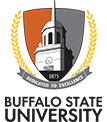The General Education Program (GE 23) promotes an understanding of the continuity of human history, the depth of inherited knowledge, the validity of diverse modes of inquiry, the value of artistic expression and the richness of our collective experience.
The purpose of the General Education Program is to develop the skills and habits of the mind required for a life of intellectual curiosity and civic engagement.
Guiding Principles*
- Well-educated people understand that they live in history. They understand that this is the key to who we are today and where we are going tomorrow. They recognize the profound ways in which our own experience is crucially conditioned by that of others.
- Well-educated people understand that there are many ways of viewing and understanding the world and recognizes and appreciates both difference and similarity. They are literate across a wide range of genres and media and can find, in radically different forms of discourse, crucial and equally valuable insights and meaning. For the educated person, all are special forms of "reading," profound ways in which the eyes and the ears, and the other senses become attuned to the infinite wonders and talents that make up the human and the natural world.
- Well-educated people know how to listen and to hear; to watch and observe. They can follow an argument, track logical reasoning, detect illogic; hear the emotions that lie behind both the logic and the illogic, and ultimately empathize with the person who is feeling those emotions. They recognize that insights are to be gained from people with a variety of backgrounds and values and uses them in a constant dialogue between knowledge and values.
- Well-educated people can communicate effectively. They know how to present information, to ask thoughtful questions and to converse with people of different backgrounds. They practice respect and humility, tolerance and self-criticism.
- Well-educated people can write clearly, persuasively and movingly. They are adept at the craft of using the written word to convey ideas, emotions, and accurate description. They approach writing as a creative process of communication – of intellectual and civic engagement – as well as self-reflection.
- Well-educated people can solve a wide variety of problems. They know how to look at a complex reality, break it into pieces, analyze and reconstruct it again. They understand that challenges present themselves in vastly differing and unexpected forms and contexts and must be addressed using a variety of critical and creative methodologies, both qualitative and quantitative.
- Well-educated people jointly engage the world of ideas, of human affairs and of nature by integration and connection. They see connections so as to be able to make sense of the world and act within it in creative ways. They know that they belong to a community whose prosperity and well-being is crucial to their own and help that community flourish by giving of themselves to make the success of others possible. All of the qualities addressed above are in the end about gaining the power, the insight, the generosity, and finally the freedom and the wisdom to connect with one another and the world.
* We believe these principles to be universal, for they can be found in much the same form in nearly all civilizations. They are far from being exclusively American or even Western. See Martha C. Nussbaum Cultivating Humanity: A Classical Defense of Reform in Liberal Education (Cambridge, MA: Harvard University Press, 1997). Bullet items 2-7 borrow heavily from Cronon, William J. "HIV, Health, and Liberal Education." In: Wm. David Burns, Ed. Learning for Our Common Health: How an Academic Focus on HIV/AIDS Will Improve Education and Health. (Washington, DC: Association of American Colleges and Universities, 1999). Also published in The American Scholar, Volume 67, Number 4 (Autumn 1998), adapted and reprinted in, Volume 85, Number 1 (winter 1999).

